
Birmingham: The Heartbeat of Britain's Industrial Revolution
Birmingham, located in the West Midlands of England, is a city that beautifully marries its rich industrial heritage with vibrant modern culture. Once known as the 'Workshop of the World' during the Industrial Revolution, it has now blossomed into a bustling metropolis that offers a diverse range of attractions and experiences for tourists. Start your journey in the city's historic centre, where you can explore the Birmingham Museum and Art Gallery, home to a vast collection of Pre-Raphaelite art and impressive exhibitions. Nearby, the Victoria Square boasts stunning architecture, including the Town Hall and the Council House, surrounded by charming cafes and restaurants. For a taste of Birmingham's modernity, head to the Bullring & Grand Central, a shopping paradise that blends contemporary design with a variety of high-street and luxury brands. Don't miss the iconic Selfridges building, an architectural marvel with its futuristic design. Birmingham is also known for its thriving food scene. The city offers a plethora of dining options, from Michelin-starred restaurants to the famous Balti Triangle, where you can savour authentic South Asian cuisine. Make sure to visit the bustling Digbeth, an area known for its street food markets, indie shops, and vibrant nightlife. For a breath of fresh air, take a stroll along the canals that weave through the city. Often referred to as having more canals than Venice, these waterways offer picturesque views and a peaceful escape from the urban hustle. You can also visit the beautiful Birmingham Botanical Gardens or take a short trip to the scenic Lickey Hills Country Park. Birmingham's cultural scene is equally impressive. The city boasts world-class theatres, including the Birmingham Hippodrome and the Symphony Hall, home to the acclaimed City of Birmingham Symphony Orchestra. For history enthusiasts, the Black Country Living Museum offers an immersive experience of life during the Industrial Revolution. In Birmingham, you'll find a city that seamlessly blends the old with the new, offering a unique and enriching experience for every visitor.
Local tips in Birmingham
- Visit the Birmingham Museum and Art Gallery early in the day to avoid crowds and have a more relaxed experience.
- Explore the canals by taking a boat tour for a unique perspective of the city.
- Head to the Bullring & Grand Central on weekdays to enjoy a less crowded shopping experience.
- Don't miss the Digbeth Dining Club on weekends for an incredible street food experience.
- Purchase a day pass for public transport to easily explore different parts of the city.
Neighbourhoods in Birmingham
Birmingham: The Heartbeat of Britain's Industrial Revolution
Birmingham, located in the West Midlands of England, is a city that beautifully marries its rich industrial heritage with vibrant modern culture. Once known as the 'Workshop of the World' during the Industrial Revolution, it has now blossomed into a bustling metropolis that offers a diverse range of attractions and experiences for tourists. Start your journey in the city's historic centre, where you can explore the Birmingham Museum and Art Gallery, home to a vast collection of Pre-Raphaelite art and impressive exhibitions. Nearby, the Victoria Square boasts stunning architecture, including the Town Hall and the Council House, surrounded by charming cafes and restaurants. For a taste of Birmingham's modernity, head to the Bullring & Grand Central, a shopping paradise that blends contemporary design with a variety of high-street and luxury brands. Don't miss the iconic Selfridges building, an architectural marvel with its futuristic design. Birmingham is also known for its thriving food scene. The city offers a plethora of dining options, from Michelin-starred restaurants to the famous Balti Triangle, where you can savour authentic South Asian cuisine. Make sure to visit the bustling Digbeth, an area known for its street food markets, indie shops, and vibrant nightlife. For a breath of fresh air, take a stroll along the canals that weave through the city. Often referred to as having more canals than Venice, these waterways offer picturesque views and a peaceful escape from the urban hustle. You can also visit the beautiful Birmingham Botanical Gardens or take a short trip to the scenic Lickey Hills Country Park. Birmingham's cultural scene is equally impressive. The city boasts world-class theatres, including the Birmingham Hippodrome and the Symphony Hall, home to the acclaimed City of Birmingham Symphony Orchestra. For history enthusiasts, the Black Country Living Museum offers an immersive experience of life during the Industrial Revolution. In Birmingham, you'll find a city that seamlessly blends the old with the new, offering a unique and enriching experience for every visitor.
When is the best time to go to Birmingham?
Iconic landmarks you can’t miss
St. Martin's
Discover Birmingham’s historic Gothic Revival parish church nestled in the vibrant heart of the Bull Ring shopping district.
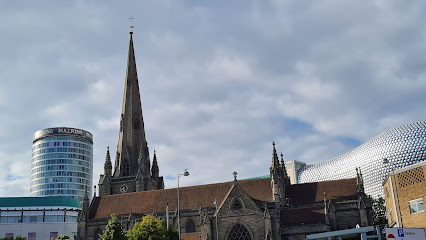
St Chad's Catholic Cathedral
Discover Birmingham’s first post-Reformation Catholic cathedral, a Gothic Revival masterpiece rich in history, art, and spiritual heritage.
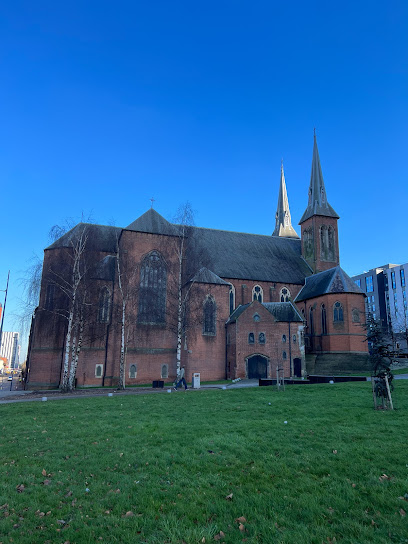
Soho House Museum
Explore Soho House Museum, the elegant Georgian home of industrial pioneer Matthew Boulton and a birthplace of the Industrial Revolution.
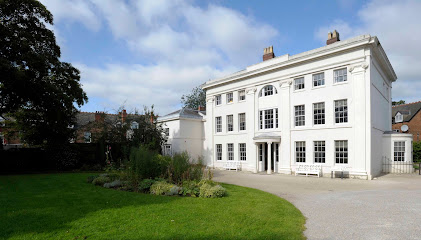
The Shakespeare Memorial Fountain
A Victorian Gothic tribute in Stratford’s marketplace celebrating Shakespeare, Queen Victoria, and Anglo-American friendship.
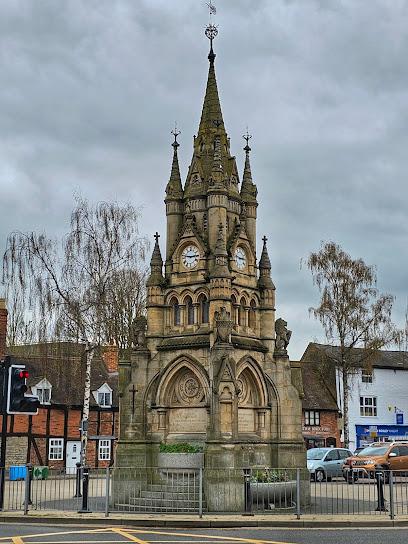
Edgbaston Waterworks Tower
Discover Birmingham’s Victorian Waterworks Tower, a striking industrial landmark and rumored inspiration for Tolkien’s legendary Two Towers.
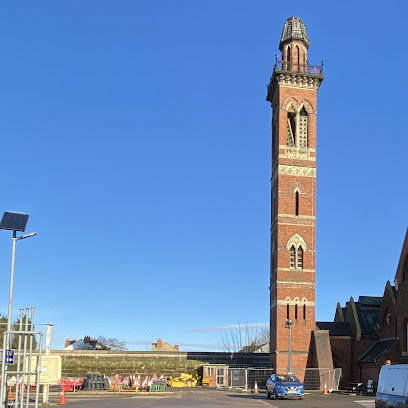
The Selfridges Building
A shimmering silver landmark in Birmingham’s Bullring, where shopping meets futuristic architecture and luxury retail in a sculptural masterpiece.
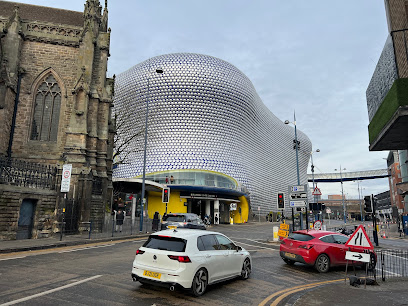
Stratford-upon-Avon Town Hall
Elegant Palladian landmark in Stratford-upon-Avon, blending rich history, Shakespearean heritage, and civic tradition since 1767.
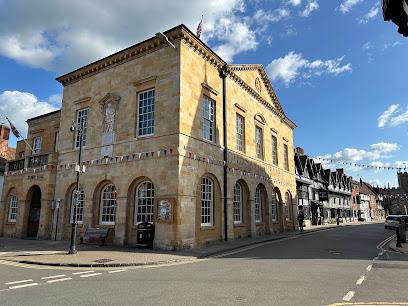
The Randolph Turpin Statue
Celebrate the legacy of British boxing champion Randolph Turpin with this striking bronze statue in Warwick’s historic Market Square.
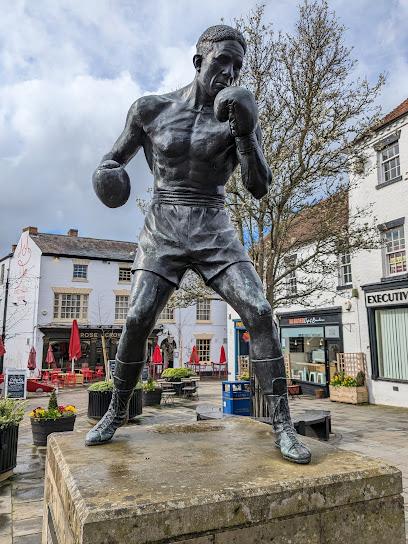
Gem Buildings
Discover the Gem Buildings—historic diamond cutting works embodying Birmingham’s Jewellery Quarter heritage and architectural charm.
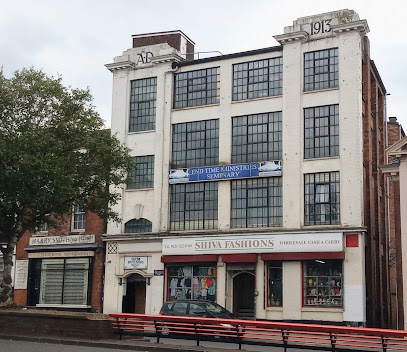
The Best of Birmingham Trail
Explore Birmingham’s rich heritage through a free, immersive trail connecting 20 iconic cultural and historical sites in the city centre.
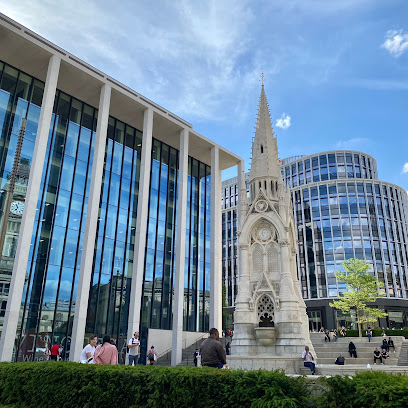
Almshouses
Medieval charity frozen in timber and time—a 600-year-old row of almshouses where Shakespeare once walked.
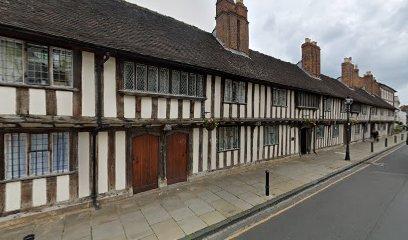
Unmissable attractions to see
Bullring & Grand Central
Experience Birmingham’s iconic shopping and dining destination blending modern design, diverse retail, and vibrant social life.
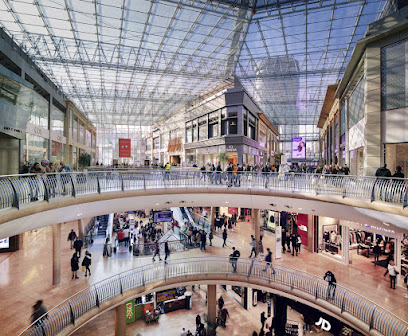
Warwick Castle
Medieval fortress where 1,100 years of history come alive through spectacular shows, soaring birds of prey, and immersive experiences.
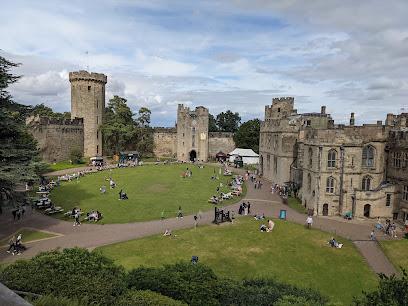
Cadbury World
Discover the magic of Cadbury chocolate through immersive zones, hands-on fun, and rich heritage in Birmingham’s iconic family attraction.
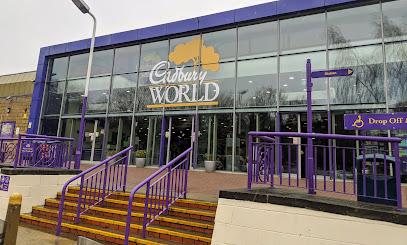
Shakespeare's Birthplace
Step into the Tudor world where Shakespeare was born and discover the roots of the world’s greatest playwright in Stratford-upon-Avon.
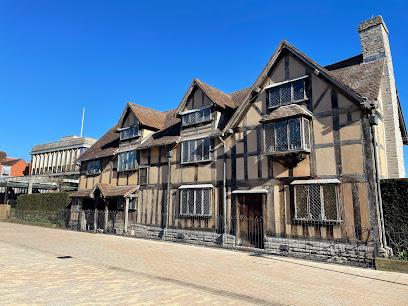
National SEA LIFE Centre Birmingham
Dive into the UK's only 360° ocean tunnel and discover playful penguins, rescued sea otters, and vibrant marine life at Birmingham’s premier aquarium.
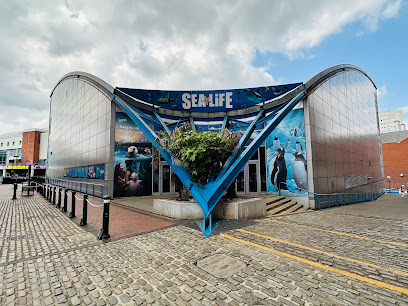
Black Country Living Museum
Step back in time and explore over 300 years of Black Country industrial heritage in a vibrant open-air museum with living history and authentic experiences.
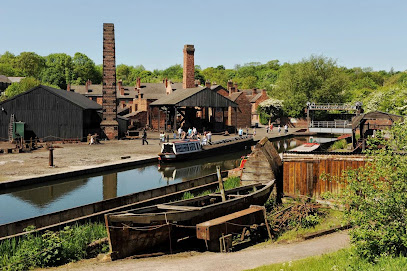
Cannon Hill Park
A vibrant green escape in Birmingham offering gardens, lakes, cultural arts, and fun activities for all ages year-round.
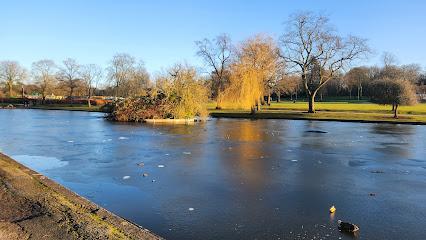
Birmingham Hippodrome
Birmingham's grand Victorian theatre where 125 years of entertainment history meets world-class performances.
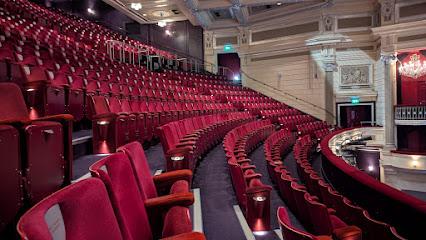
Cannon Hill Park
Birmingham’s grand Victorian park with lakes, wildlife, arts, and family fun – a green escape in the city.
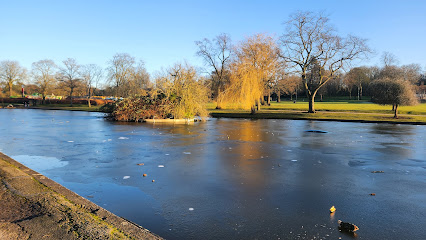
British Motor Museum
Explore the world's largest collection of historic British cars in a family-friendly museum celebrating Britain's motoring legacy.
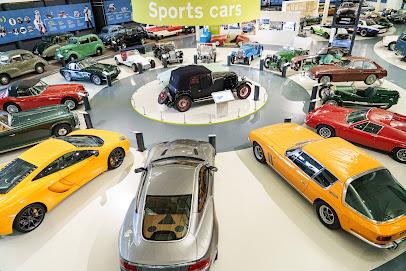
Stratford Butterfly Farm
Discover the UK's largest tropical butterfly paradise in Stratford-upon-Avon, where vibrant butterflies and rainforest wonders await all ages.

Birmingham Museum & Art Gallery
Explore Birmingham’s rich heritage and world-class art in a stunning historic museum with free entry and family-friendly galleries.
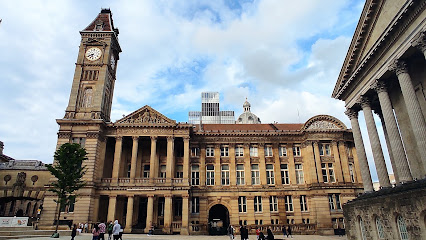
Symphony Hall
Experience world-class acoustics and vibrant live performances at Birmingham’s iconic Symphony Hall on Broad Street.
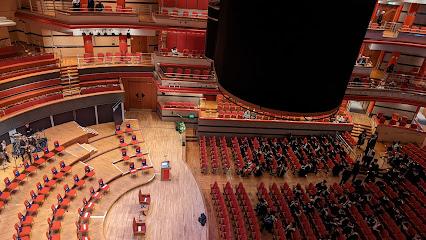
Mailbox Birmingham
A chic canalside hub in Birmingham blending luxury shopping, fine dining, vibrant workspaces, and entertainment in a stunning historic setting.
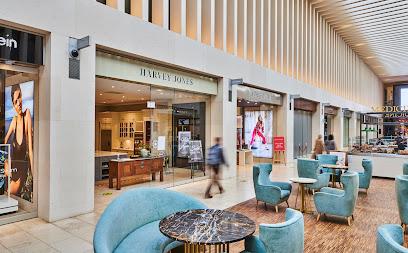
Coventry Transport Museum
Explore the world’s largest public collection of British vehicles and experience Coventry’s rich transport heritage up close.
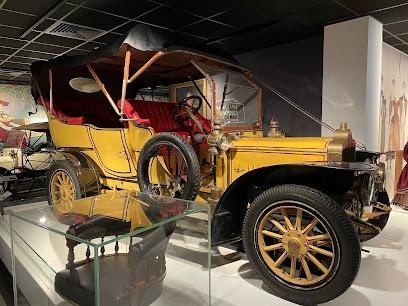
Essential places to dine
MyLahore Birmingham
Experience vibrant British-Asian flavors and warm hospitality in a lively, spacious setting at MyLahore Birmingham.
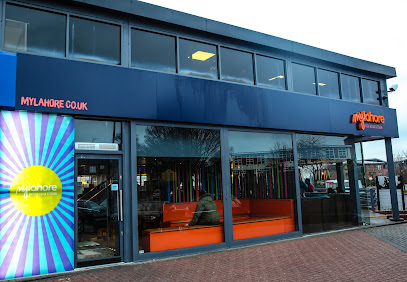
The Botanist Birmingham
A vibrant botanical oasis in Birmingham city centre, blending fresh seasonal dining, inventive cocktails, and live music by the canal.
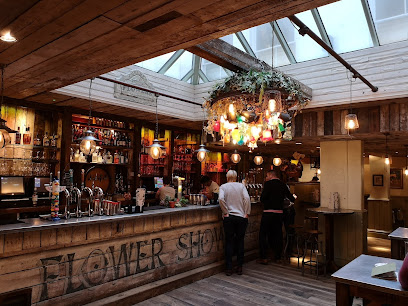
The Lost & Found Birmingham
A Victorian botanical haven in Birmingham offering creative British cuisine and inventive cocktails in a quirky, vintage-inspired setting.
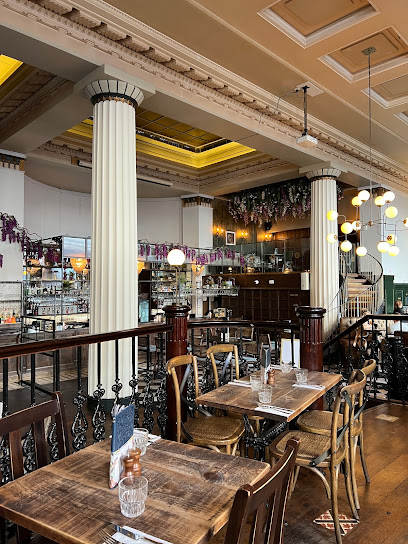
Dishoom Birmingham
A vibrant 1960s Bombay café in central Birmingham, serving bold Indian street food and classics in a theatrical, nostalgic setting with a large outdoor terrace.
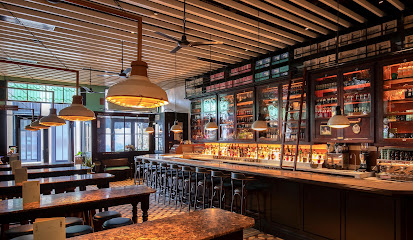
The Ivy Temple Row
Sophisticated British dining in Birmingham’s city centre with elegant art deco style and an extensive all-day menu.
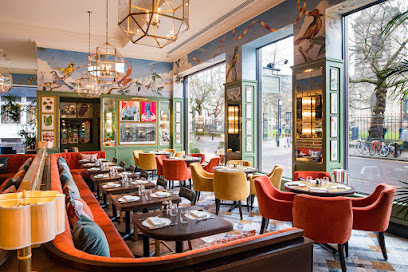
Tattu Birmingham
Ancient philosophy meets modern cuisine in Birmingham's most architecturally audacious Chinese restaurant.
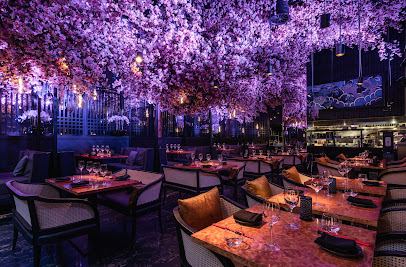
Las Iguanas - Birmingham - Temple Street
Vibrant Latin American dining with carnival energy, fresh cocktails, and shareable feasts in Birmingham's city centre.
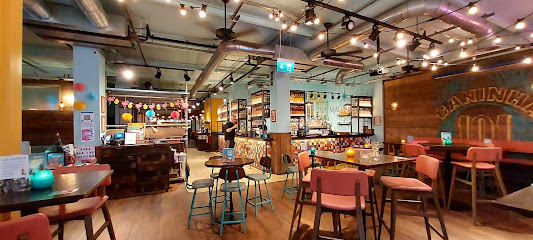
Mowgli Street Food Birmingham
Whimsical Indian street food in a fairy-lit jungle setting, perfect for sharing bold flavours in the heart of Birmingham’s Grand Central.
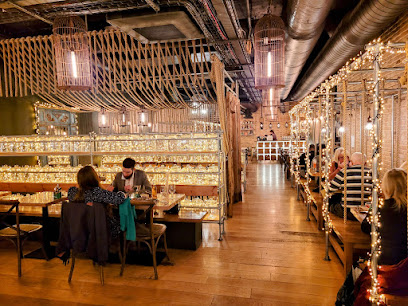
Bistrot Pierre - Birmingham
Authentic French bistro on Birmingham's canalside, serving traditional cuisine at accessible prices in a Grade II listed building.
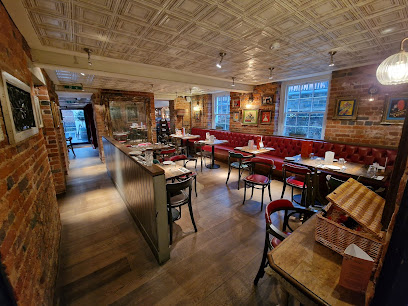
Browns Birmingham
Stylish brasserie in St Martins Square offering classic dishes with a modern touch in Birmingham’s vibrant city centre.
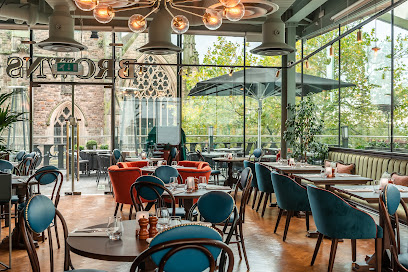
The Birmingham Stable
A lively Birmingham pizza and cider bar with thin-crust sourdough, craft ciders, and a buzzing industrial-chic vibe – perfect for casual dinners and bottomless brunches.
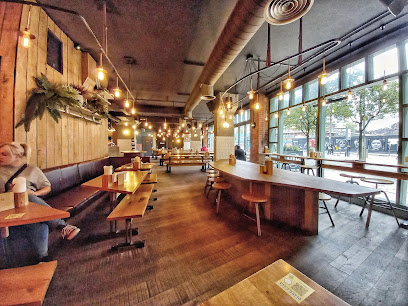
Gaucho Birmingham
Experience authentic Argentinian steakhouse luxury with premium cuts and elegant ambiance in Birmingham’s vibrant city centre.
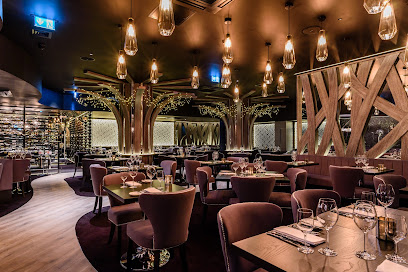
Gusto Italian
Modern Italian dining in a stylish, relaxed setting beneath Birmingham’s Grand Hotel – perfect for lunch, dinner or a celebration in the city centre.
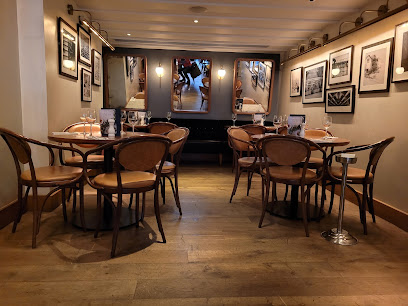
San Carlo - Birmingham
Experience timeless Italian elegance and classic cuisine in the heart of Birmingham’s vibrant city centre at San Carlo.
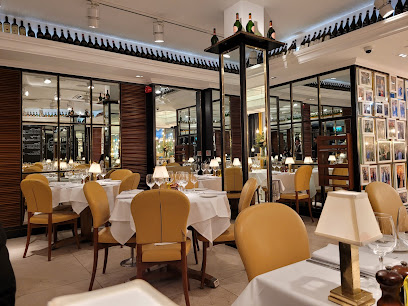
Fumo by San Carlo - Birmingham Waterloo St
Chic Italian small plates and creative cocktails in Birmingham’s vibrant city center, blending authentic flavors with stylish ambiance.
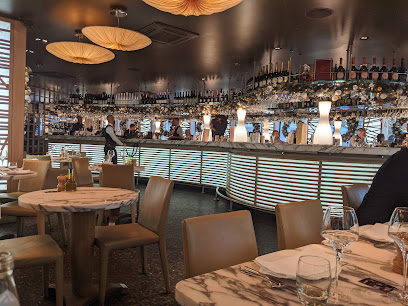
Markets, malls and hidden boutiques
Primark
Explore the world’s largest Primark store in Birmingham, where affordable fashion meets family-friendly fun and unique amenities.
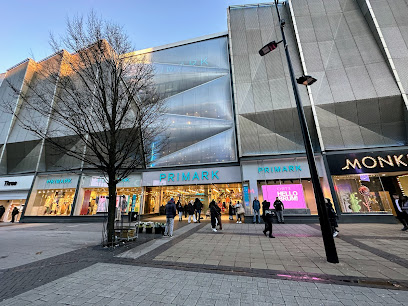
St Andrew's Shopping Park
A vibrant shopping hub in Small Heath, Birmingham, offering diverse stores, eateries, and easy access for a complete retail experience.
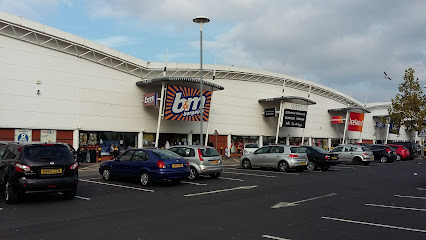
The Square Shopping Centre
A compact, vibrant shopping hub in Birmingham city centre blending budget-friendly stores with local charm and convenient dining options.
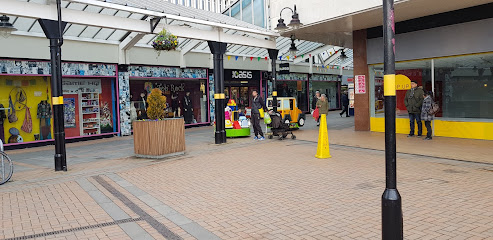
Harvey Nichols
Discover luxury fashion, beauty, and gourmet delights at Harvey Nichols Birmingham, a premier designer department store in The Mailbox.
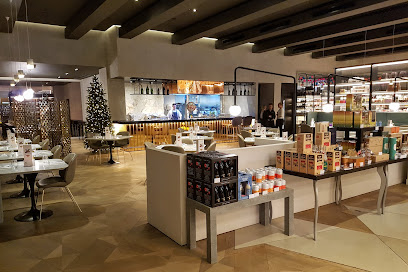
The Oasis fashion store
A vibrant hub for alternative fashion, vintage finds, and creative lifestyle services in the heart of Birmingham.
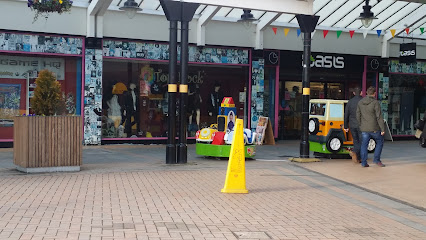
Cow Vintage
Discover unique vintage fashion treasures in Birmingham’s vibrant Digbeth district at Cow Vintage.

Flying Tiger Copenhagen
Discover quirky, affordable Scandinavian gifts and everyday essentials that bring joy and creativity to Birmingham’s city center.
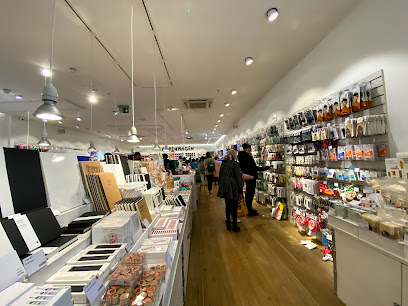
KENJI Birmingham Bullring
Discover quirky Japanese-inspired gifts and immersive pop culture at KENJI Birmingham Bullring, a vibrant hub for unique shopping experiences.
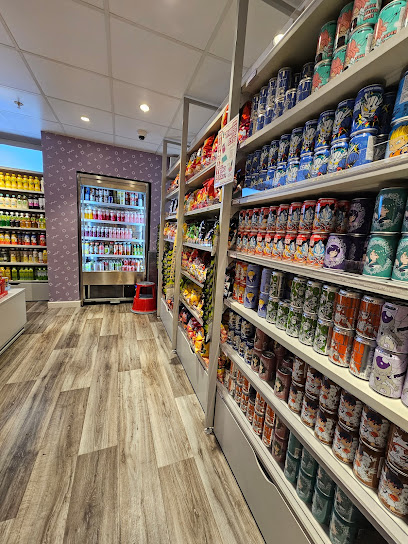
Menkind
Discover quirky gifts, gadgets, and fun toys at Menkind Birmingham, your go-to store for unique and entertaining presents in Bullring Shopping Centre.
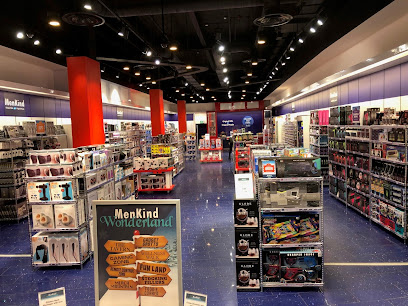
The Zen Shop
Discover spiritual wellness and holistic treasures at The Zen Shop, Birmingham’s vibrant hub for crystals, readings, and healing.
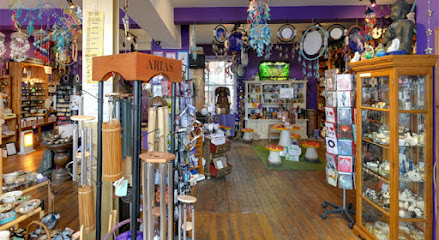
THE JEWELLERY TRUNK BIRMINGHAM
Bespoke bridal and custom jewelry crafted with care and elegance in Birmingham’s Handsworth district.
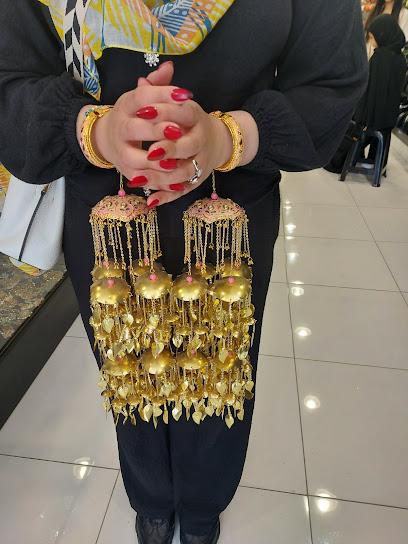
Sheanies
Discover authentic vintage streetwear and timeless American workwear in Birmingham’s vibrant Sheanies boutique.
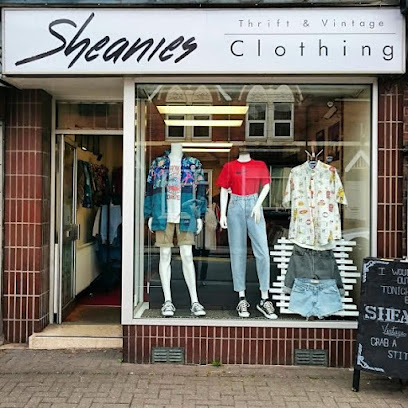
Top Banana
Discover authentic retro sportswear and vintage treasures at Top Banana, King’s Heath’s vibrant hub for unique fashion finds.
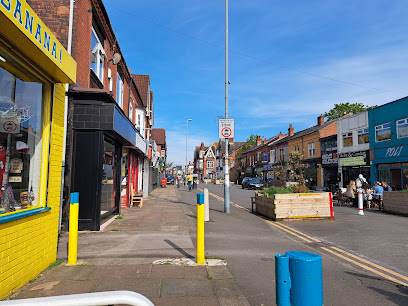
Wornwell Vintage Clothing
Discover authentic vintage fashion and quality streetwear at Wornwell Vintage Clothing, a unique shop nestled inside Primark on Birmingham's High Street.
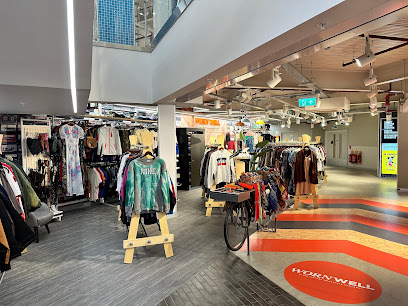
Armadillo
Discover unique artisan gifts in the heart of King's Heath at Armadillo, a beloved local treasure for thoughtful shopping.
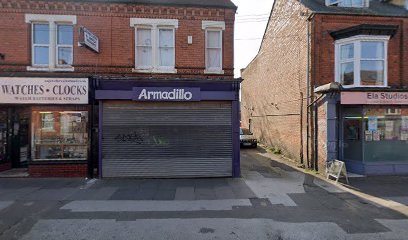
Essential bars & hidden hideouts
Pitcher & Piano Birmingham
Vibrant waterside bar with retro charm, scenic canal views, and lively brunches in Birmingham’s Brindleyplace.
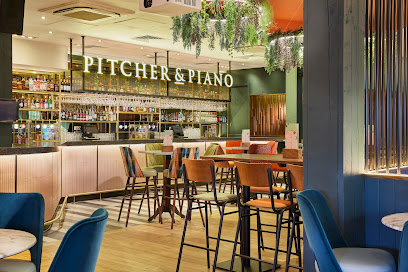
The Botanist Birmingham
Discover a botanical haven in Birmingham’s city centre, where lush greenery meets inventive cocktails and seasonal dining by the canal.
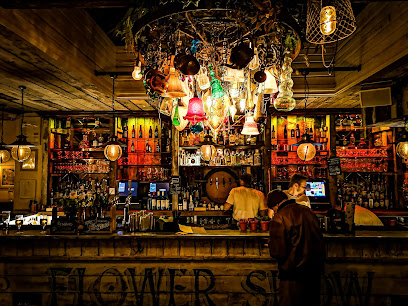
The Lost & Found Birmingham
Discover the enchanting atmosphere and exquisite cuisine at The Lost & Found Birmingham, a must-visit restaurant and cocktail bar.

Bacchus Bar
Discover Bacchus Bar, Birmingham’s atmospheric medieval-themed pub with eclectic ales, hearty British fare, and unique historic charm beneath Burlington Arcade.
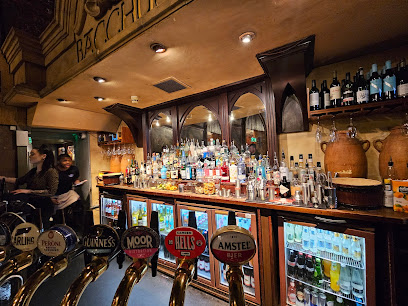
Slug & Lettuce - Birmingham
Lively cocktail bar and restaurant at Brindleyplace, Birmingham, perfect for social gatherings, late-night fun, and waterfront dining.
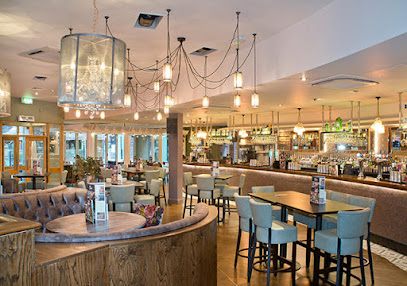
The Alchemist Colmore Row
Experience Birmingham’s theatrical molecular cocktails and globally inspired dining in the historic Grand on Colmore Row.
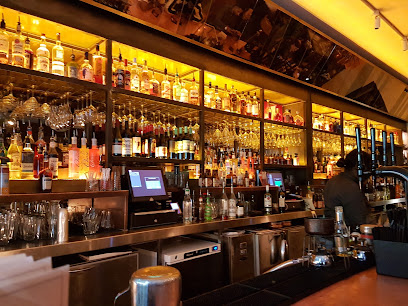
BrewDog Birmingham
Discover Birmingham’s craft beer haven with bold brews, industrial vibes, and lively events at BrewDog on John Bright Street.
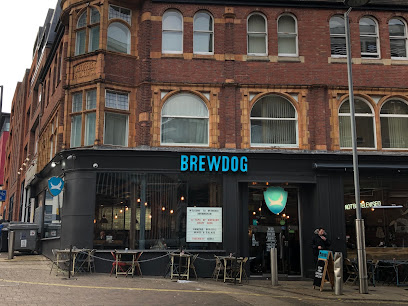
Tonight Josephine - Birmingham
Experience Birmingham’s boldest pink cocktail bar with creative drinks, vibrant events, and a party spirit inspired by Empress Joséphine.
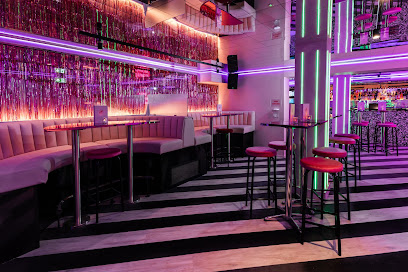
Aluna
Experience theatrical cocktails and pan-Asian dining in a stylish canalside setting at Birmingham's Aluna, the Mailbox's premier cocktail bar.
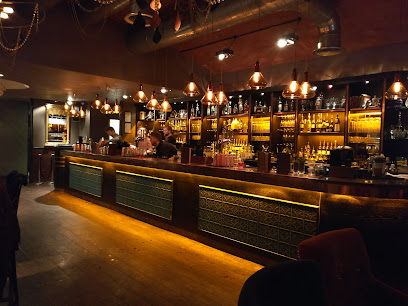
Be At One - Birmingham
Lively cocktail bar in Birmingham city centre with 100+ drinks, expert bartenders, and a vibrant party atmosphere.
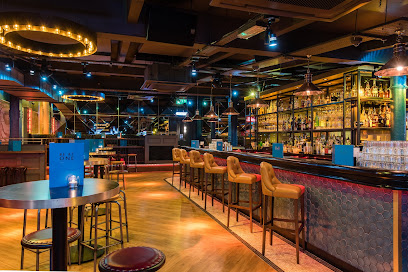
All Bar One New Street Station
A stylish and sociable wine bar in Birmingham’s New Street Station, perfect for cocktails, casual dining, and lively gatherings.
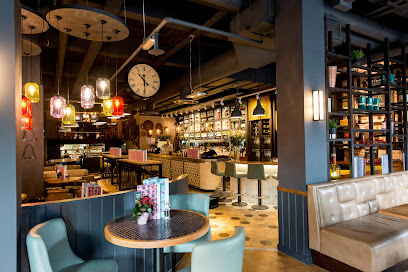
The Loft
A vibrant, inclusive gay bar in Birmingham’s Gay Village with year-round garden, great food, and a welcoming social atmosphere.
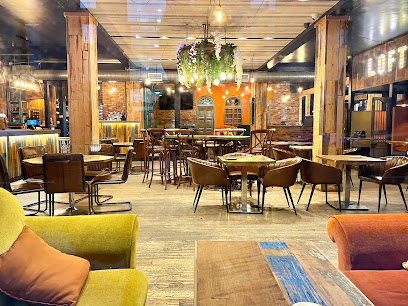
The Cocktail Club - Birmingham
Experience Birmingham’s vibrant nightlife with world-class cocktails, themed brunches, and a glamorous party atmosphere at The Cocktail Club.
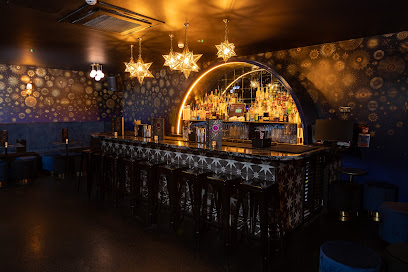
Dirty Martini - Birmingham
Trendy cocktail bar in Birmingham’s city center, known for stylish decor, expertly crafted drinks, and a lively party atmosphere.
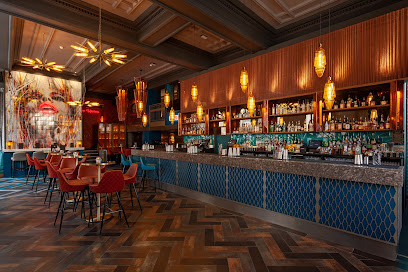
Local Phrases
-
- HelloAlright
[al-rite] - GoodbyeTa-ra
[ta-rah] - YesAye
[aye] - NoNah
[nah] - Please/You're welcomeTa
[ta] - Thank youCheers
[cheers] - Excuse me/SorrySorry
[sor-ree] - How are you?You awrite?
[yoo al-rite] - Fine. And you?Bostin. And yow?
[bos-tin. and yow] - Do you speak English?Yow spik Inglish?
[yow speek in-glish] - I don't understandI ent got a clue
[i ent got a kloo]
- HelloAlright
-
- I'd like to see the menu, pleaseCan I see the menu, bab?
[kan i see the mennyoo, bab] - I don't eat meatI dun't eat muck
[i dun't eet muk] - Cheers!Cheers!
[cheers] - I would like to pay, pleaseI'll settle up, ta
[i'll set-tl up, ta]
- I'd like to see the menu, pleaseCan I see the menu, bab?
-
- Help!Bostin!
[bos-tin] - Go away!Sod off!
[sod off] - Call the Police!Phone the Rozzers!
[fone the roz-zers] - Call a doctor!Ring a quack!
[ring a kwak] - I'm lostI'm neshed
[i'm nesht] - I'm illI feel gawmless
[i feel gawm-less]
- Help!Bostin!
-
- I'd like to buy...I'm avin that...
[i'm avin that] - I'm just lookingI'm just avin a gander
[i'm just avin a gan-der] - How much is it?Ow much?
[ow much] - That's too expensiveThat's a bit steep, that is
[that's a bit steep, that is] - Can you lower the price?Can yow do us a deal?
[can yow do us a deal]
- I'd like to buy...I'm avin that...
-
- What time is it?Wot's the time?
[wot's the time] - It's one o'clockIt's one on the knob
[it's one on the knob] - Half past (10)Arf ten
[arf ten] - MorningMornin
[mornin] - AfternoonArvo
[ar-vo] - EveningSundown
[sun-down] - YesterdayYestdy
[yest-dee] - TodayToday
[today] - TomorrowMorrer
[mor-rer] - 1Wun
[wun] - 2Too
[too] - 3Tree
[tree] - 4Fower
[fow-er] - 5Fiyve
[fiyve] - 6Sicks
[siks] - 7Sevun
[sev-un] - 8Eyt
[eyt] - 9Noin
[noyn] - 10Ten
[ten]
- What time is it?Wot's the time?
-
- Where's a/the...?Whez the...?
[whez the] - What's the address?Wot's the addy?
[wot's the addy] - Can you show me (on the map)?Can yow point it out on the map?
[can yow point it out on the map] - When's the next (bus)?When's the nex' bus?
[when's the nex bus] - A ticket (to ....)A ticket (to ....)
[a ticket (to ....)]
- Where's a/the...?Whez the...?
History of Birmingham
-
Birmingham's history dates back to the Anglo-Saxon era, with the earliest recorded mention in the Domesday Book of 1086. It was a small village in the ancient Forest of Arden, known for its fertile land and strategic location at the crossing of several important trade routes.
-
During the 12th century, Birmingham began to grow as a market town. The de Birmingham family obtained a royal charter to hold a market, which attracted merchants and traders from the surrounding areas. By the 14th century, Birmingham had established itself as a center for metalworking and manufacturing.
-
The Industrial Revolution transformed Birmingham into a major industrial and economic powerhouse. In the 18th and 19th centuries, the city became known as the 'Workshop of the World' due to its innovations in metalworking, engineering, and manufacturing. The development of the canal network and later the railways further boosted its industrial growth.
-
Birmingham was home to the Lunar Society, an influential group of intellectuals, scientists, and industrialists who met regularly to discuss and share ideas. Notable members included Matthew Boulton, James Watt, Erasmus Darwin, and Joseph Priestley. Their contributions played a significant role in advancing scientific knowledge and industrial practices.
-
The 19th century saw rapid expansion and urbanization in Birmingham. The city became a leading center for manufacturing, particularly in the production of guns, jewelry, and small metal goods. Birmingham's population grew significantly, and new civic institutions, such as the Birmingham Town Hall, were established.
-
Birmingham suffered extensive bomb damage during World War II, particularly during the Birmingham Blitz. After the war, the city underwent significant reconstruction and redevelopment. New housing estates, shopping centers, and public buildings were built, transforming Birmingham into a modern urban center.
-
In recent decades, Birmingham has experienced a cultural renaissance. The city has invested in arts, culture, and education, becoming a hub for creative industries. Landmarks such as the Birmingham Museum and Art Gallery, the Symphony Hall, and the Birmingham Hippodrome highlight the city's rich cultural heritage and vibrant arts scene.
-
Birmingham is one of the most ethnically diverse cities in the United Kingdom. Waves of immigration from the Caribbean, South Asia, and other parts of the world have contributed to the city's multicultural fabric. This diversity is reflected in Birmingham's cuisine, festivals, and community life, making it a dynamic and inclusive city.
-
In the 21st century, Birmingham has continued to evolve with significant investments in infrastructure and development projects. The Bullring Shopping Centre, the Library of Birmingham, and the redevelopment of New Street Station are examples of the city's commitment to modernization and growth. Birmingham continues to attract businesses, tourists, and students, solidifying its status as a major UK city.
Birmingham Essentials
-
Birmingham is well-connected by various modes of transportation. Birmingham Airport (BHX) serves international and domestic flights and is located about 10.2 kilometers (6.3 miles) southeast of the city center. You can reach the city center from the airport via train, bus, or taxi. Birmingham New Street, Moor Street, and Snow Hill are the main railway stations, with frequent services to London, Manchester, and other major UK cities. National Express and Megabus offer coach services to Birmingham from various parts of the UK.
-
Birmingham offers a comprehensive public transport system including buses, trams, and trains. The West Midlands Metro tram service connects Wolverhampton with Birmingham city center. The National Express West Midlands buses serve most parts of the city. For short distances, bikes and electric scooters are available for hire. Taxis and ride-sharing services like Uber are also readily available. If you plan to drive, be mindful of the Clean Air Zone regulations in the city center.
-
The official currency in Birmingham, as in the rest of the UK, is the British Pound Sterling (GBP). Credit and debit cards are widely accepted, including contactless payments. ATMs are plentiful, especially in shopping areas and near tourist attractions. It is advisable to carry some cash for small purchases or in case you visit places that do not accept cards.
-
Birmingham is generally a safe city for tourists, but it's wise to take standard precautions. Avoid walking alone late at night in unfamiliar areas, and be cautious in crowded places to prevent pickpocketing. Areas like Newtown, Lozells, and Aston have higher crime rates, so exercise additional caution if you are visiting these neighborhoods. Always keep your belongings secure and be aware of your surroundings.
-
In case of emergency, dial 999 for immediate assistance from police, ambulance, or fire services. Birmingham has several hospitals, including Queen Elizabeth Hospital and Birmingham City Hospital, which offer emergency medical care. Pharmacies are widely available for minor health issues. It's advisable to have travel insurance that covers medical emergencies.
-
Fashion: Do dress comfortably and appropriately for the weather. Smart-casual attire is generally acceptable in most settings. Religion: Do respect religious sites and practices. Remove hats and keep noise to a minimum in places of worship. Public Transport: Do have the exact fare if paying cash on buses, and tap your card when entering and exiting trams and trains. Don't eat or drink on public transport. Greetings: Do greet people with a handshake or a simple 'hello.' Eating & Drinking: Do try local dishes like Balti curry. Don't tip excessively; 10-15% is standard in restaurants.
-
To experience Birmingham like a local, visit the Bullring and Grand Central for shopping and dining. Take a stroll along the canal network, especially around Brindleyplace and Gas Street Basin. Don't miss the Jewellery Quarter, known for its history and unique shops. For a cultural experience, check out the Birmingham Museum and Art Gallery or catch a performance at the Birmingham Hippodrome. Engage with locals in a pub and try a pint of local ale.
Nearby Cities to Birmingham
-
Things To Do in Stratford-upon-Avon
-
Things To Do in Nottingham
-
Things To Do in Oxford
-
Things To Do in Sheffield
-
Things To Do in Chester
-
Things To Do in Manchester
-
Things To Do in Bristol
-
Things To Do in Liverpool
-
Things To Do in Bath
-
Things To Do in Cambridge
-
Things To Do in Cardiff
-
Things To Do in Windsor
-
Things To Do in Leeds
-
Things To Do in London
-
Things To Do in York

















